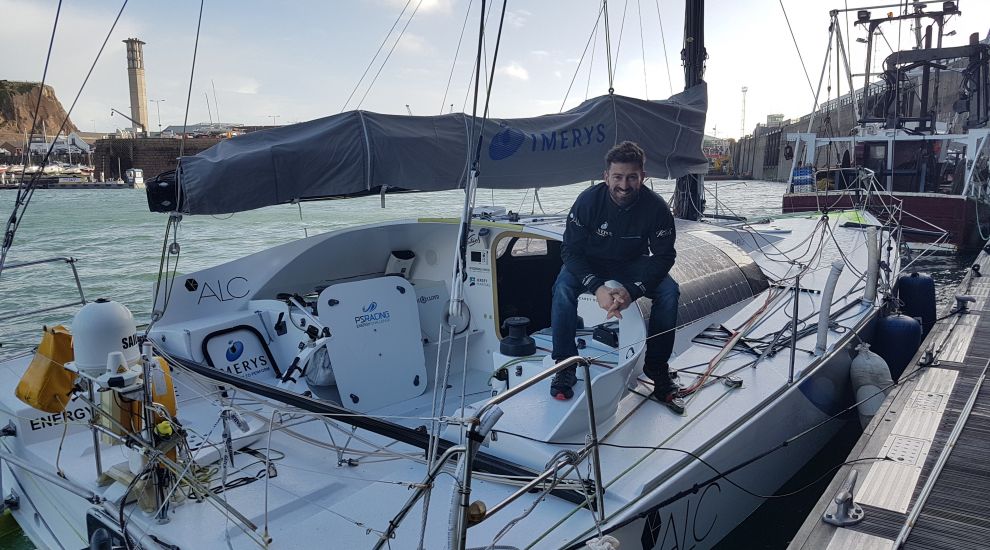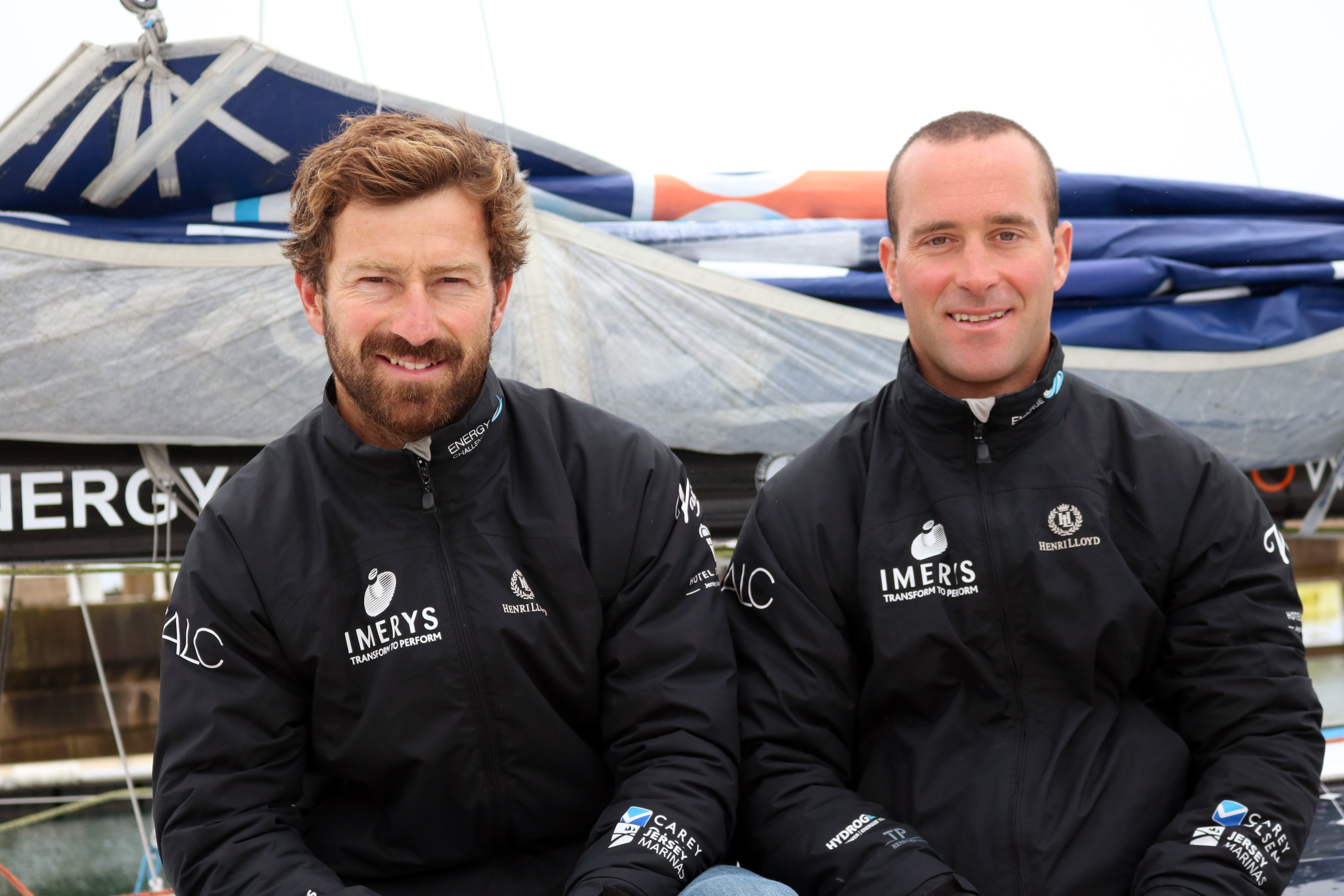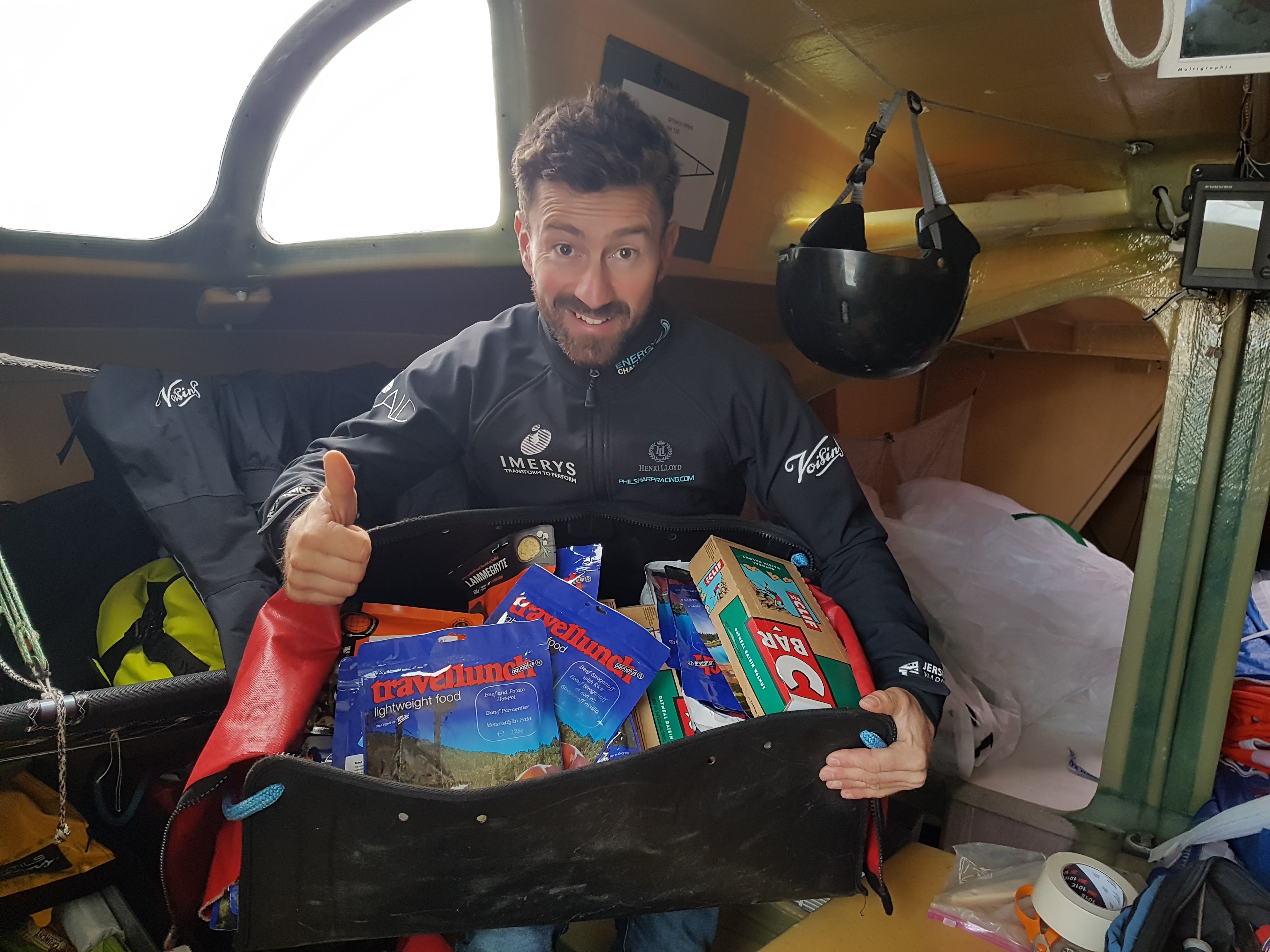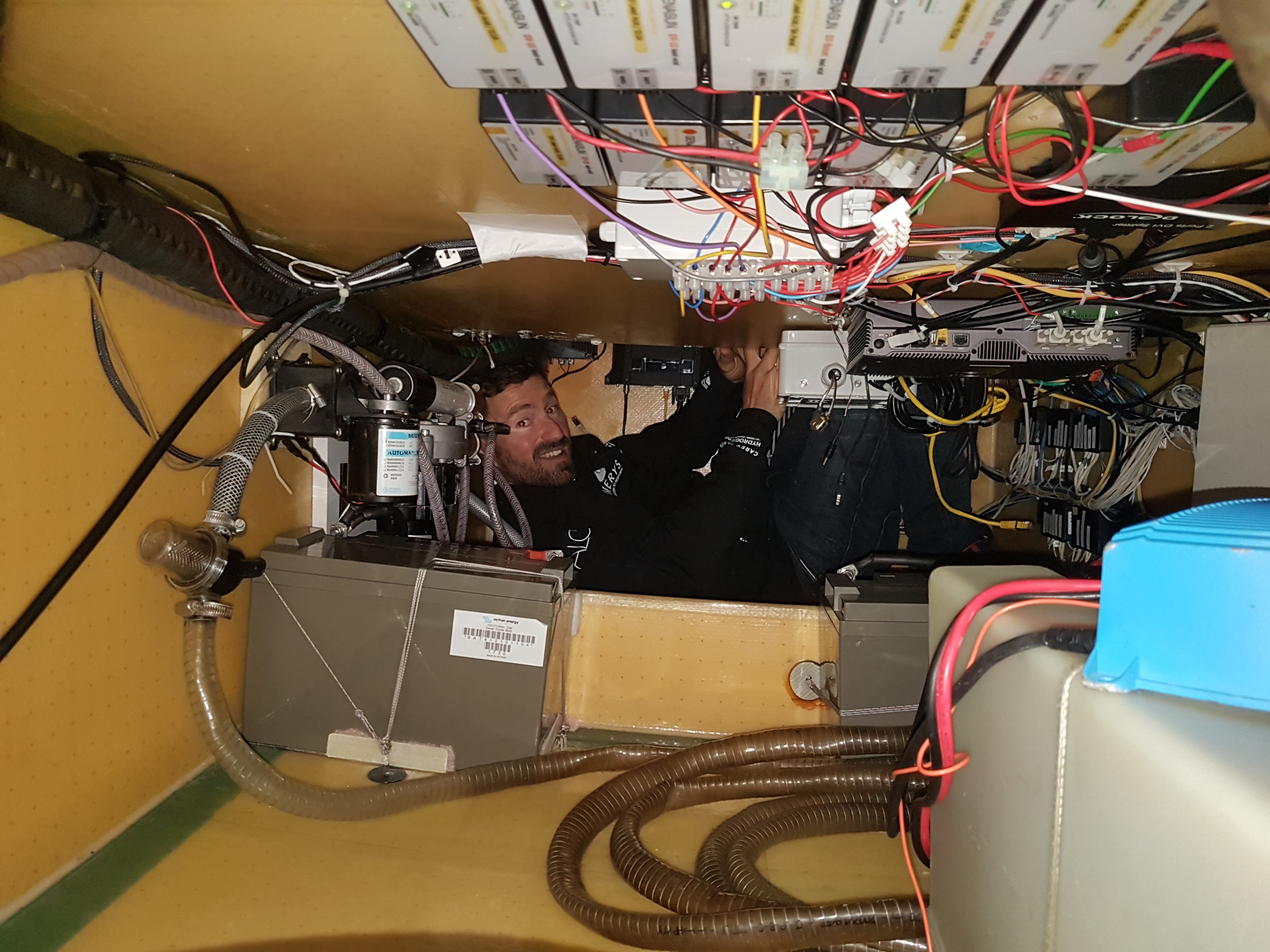

The countdown is on for Phil Sharp. The Jersey-sailor is only 12 days away from the start of his first Transat Jacques Vabre, a "marathon ocean adventure" he will race with teammate Pablo Santurde.
Phil and Pablo will set off from Le Havre on 5 November along with 38 other teams on a 4,350-mile race that will take them to Salvador de Bahia in Brazil.
They will share the helm of Imerys, a zero-emission Class 40 monohull. In preparation for the Transat Jacques Vabre, the boat received a complete overhaul: all the electronics were revised to avoid any problems with the computer or the weather channels, the spares inspected and the sails checked and "beefed up" where necessary, with the addition of a brand new spinnaker. Now, with just ten days to go before the departure, Phil and Pablo are going through a list of 200 items of safety checks. From first aid kits to navigational equipment, emergency beacons, compasses and fog horns, the two need to be prepared for every eventuality.

Pictured: Phil Sharp and Pablo Santurde.
With a 4,350-mile-long course covering "wildly different conditions", the pair also had to secure their satellite communications to make sure they can pick up weather updates while offshore. Phil explained: "If we have a storm that develops quickly, an unforecast one, which is exactly what I had last year in the Transat, we need to know about that to make sure we can adjust our strategy. Otherwise, we can get caught out in the middle of something very nasty. If you don't receive the weather for a couple of the days you are sailing in the dark and that’s always a bit risky. The weather is always changing and it is never how you forecast it."
This will be the first time Phil has taken part in the Transat, a race based on the historic coffee trading route between France and Brazil. This will also be his longest race this year. While the prospect might seem daunting, Phil is eager to set off. "I’ve never done this specific race. It’s very exciting, it’s a great course. It takes you through various different weather conditions."
A taste of the adventure to come #TJVcountdown Starting 05/11/17 Watch this space #GoImerys #LiveTrackerComingSoon #Hunt4Victory pic.twitter.com/Xzhz4uzUuC
— Phil Sharp Racing (@PhilSharpRacing) October 16, 2017
Video: A flavour of what can be expected at this year's Transat Jacques Vabre. (Phil Sharp/Twitter)
The course will go from "the extremes of the North Atlantic winter depressions which can give gales and potentially storms" to the downwind, stable tropical sailing of the trade winds in the South of Spain. "You are out in the sun, it’s clear sky, it’s like your dream sailing conditions anywhere in the world." After what Phil describes as a "huge relief", he and Pablo will have to tackle the doldrums, where the two prevailing winds meet ,creating huge cloud formations with lots of thunderstorms, unstable winds and patches with light winds. "We can be two days without winds. It’s almost impossible to forecast. It's potluck, really! It can be a sailor’s worst nightmare. We could be in a really good position, with a boat 100 miles behind us and they might catch right up behind us by having a good passage through the doldrums. But, vice versa, it could be a really good opportunity to catch up, if we happen to be a long way behind the front runners, which I’m hoping won't be the case."
After the notorious doldrums, they will reach the more stable South East trade winds in the southern hemisphere. "That again is a huge relief. When eventually those winds fill in, you know you have got consistent winds and you are away. And then really, it’s a drag race to the finish. Over 1,000 miles! There are four main phases and each offers wildly different conditions. We can expect everything and anything. It's non-stop, it is really a marathon ocean adventure. We haven’t done anything quite like this."

Pictured: Phil Sharp with three weeks of food supplies.
As difficult as the course may sound, Phil will be able to count on Pablo. The two met for the first time on the water when they were sailing against each other. While Phil says that, "All your competitors are your enemies on the water", the two men get along pretty well on solid ground. Earlier this year, they won the Normandy Channel Race together, breaking records at the same time. After racing against each other to Les Açores, the two men will once again be on the same boat. "It will be great sailing with Pablo, he is a very motivated and very positive chap. He moves at a 100-miles an hour all the time. He is a super nice guy, he’s actually got a lot of world-class successful experience, but you would never know speaking to him because he is very modest. He is 100% focused on the boat and he will jump to do a sail change as and when we need it."
The two men will be working "around the clock, 24 hours a day, for three weeks" to be the first to reach the finish line in Salvador de Bahia. Even though there is the promise of sunshine upon arrival, it won't be a pleasure cruise. Luckily, the pair work well together - a fact proven by their success in other races earlier this year. "The difficult thing about ocean racing is that you can never just pause and relax. It's literally non-stop for three weeks. We split things up between Pablo and I. He will be helming the boat and I might be navigating, or I might be adjusting the sails or eating and sleeping and then we reverse roles. It’s good to have someone who complements your skills. My expertise is more in the navigation and the tactics and Pablo is really good at keeping the boat going fast the whole time. So if all goes well, if we keep the boat in one piece and we don’t drive it too hard, we should hopefully get a good result. But it’s a really long race and anything could happen."

Pictured: Phil Sharp in the "tunnel of doom" - the part of the cockpit where all the electronics are stored.
Listening to Phil talk about all the things that could go wrong, one might feel a bit daunted, but the challenge is what keeps him motivated. "Sailing is a very challenging sport; it is very technical. I think that is why I really enjoy it. It’s also horrendously strategic. There is a whole mental and psychological challenge behind the sport in trying to outwit your competitors by seeking out the more advantageous weather conditions and routing your boat according to those. It’s trying to be one step ahead of the others all the time. You have to position yourself so you are there to be in the best place for the wind every time. It might be actually losing positions to gain positions. It’s quite difficult."
But there are also times where it is all smooth sailing. "This boat can jump on a plane and then you can be sailing it, 15 to 20 knots quite happily and it gets very wet, but it is great fun! We all get a smile on our face in those moments. You live for those days on the water where you are surfing down wind in 25 knots of breeze and you are playing with the waves and the boat is accelerating down them."
While there might not be too many of those moments on the way to Brazil, Phil and Pablo are definitely hoping for plenty of reasons to celebrate and drink a cocktail or two.
Comments
Comments on this story express the views of the commentator only, not Bailiwick Publishing. We are unable to guarantee the accuracy of any of those comments.